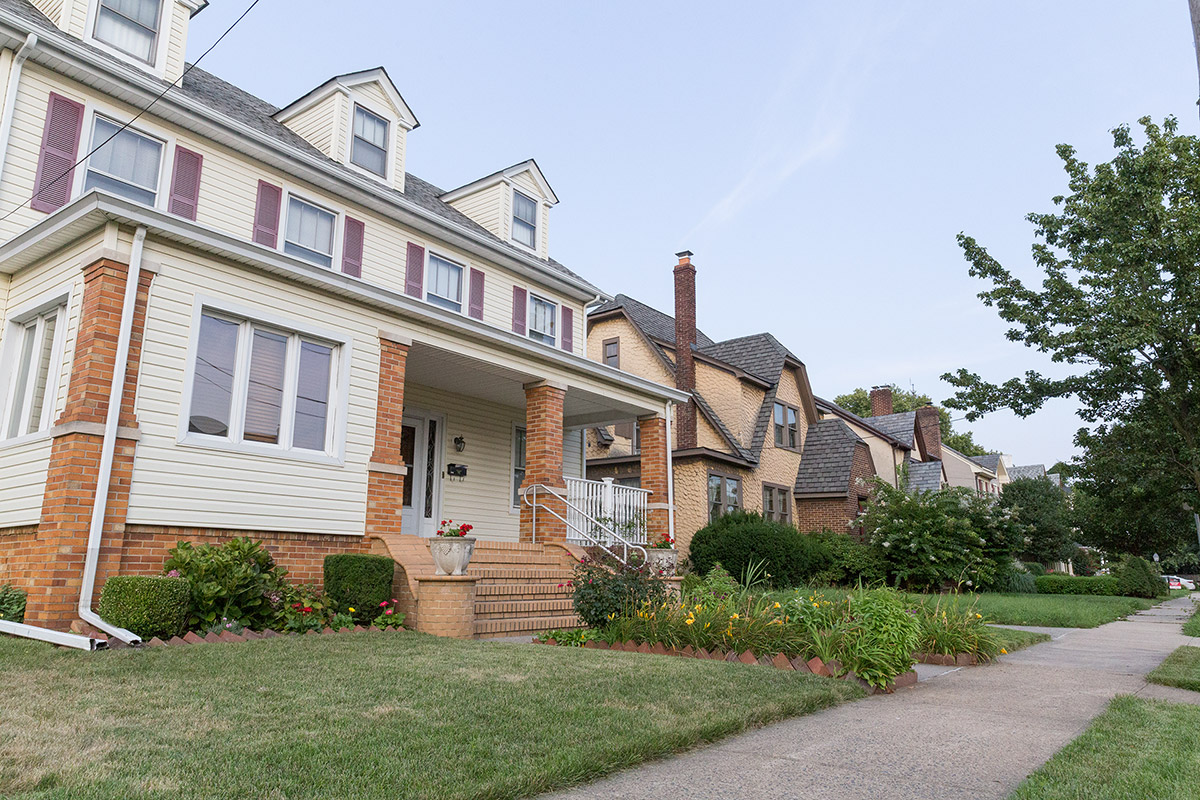Neighborhoods
Promoting Healthy, Affordable, & Stable Housing
Housing
Housing
A Neighborhood Initiative
We’re striving to ensure that all New Brunswick households have a healthy, affordable, and stable place to call home.

Why Housing Matters
Housing is a cornerstone of neighborhood quality of life. Yet in New Brunswick, the housing market presents significant challenges—especially for low- and moderate-income families. Residents face:
- High rents: The city’s average rent has climbed to $2,400, even in historically low-income neighborhoods.
- Cost burdens: Approximately 65% of renter households spend more than 30% of their income on housing, and 40% spend more than 50%.
- Limited vacancy and deteriorating housing stock
- Investor pressures that drive up costs and reduce affordability
Our Approach
NBT and our partners are tackling these challenges head-on through a multi-pronged strategy focused on:
➸ Enabling First-Time Homeowners
We support first-time homebuyers—especially low- and moderate-income and immigrant families—through:
- Pre-purchase education and counseling
- Club Mi Casa / My Home Club: A four-session intensive program for households actively seeking to buy
- Down payment and closing cost assistance grants for income-eligible buyers purchasing in the Esperanza Neighborhood
➸ Educating & Empowering Tenants
With 80% of New Brunswick households renting, we’re committed to improving conditions for tenants through:
- Housing counseling: Education on tenant rights and responsibilities, plus case management for issues like unsafe conditions and eviction risk
- New Brunswick Tenant Association: A community-led organizing body—primarily Spanish-speaking—that advocates for stronger tenant protections and policy change
➸ Creating Affordable Housing Opportunities
NBT and our sister agency, Hub City Housing, have entered a new chapter as affordable housing developers. Our efforts include:
- Rehabilitating distressed properties and selling them to low- and moderate-income homebuyers
- Supporting new construction and partner-led development in target neighborhoods
OUR IMPACT
volunteer residents participating
hours performed in community improvement activities
community clean-ups
residents satisfied with neighborhood
Citywide impacts due to resident advocacy:
workers gaining mandatory paid sick time
Municipal IDs issued
vacant properties rehabilitated
local ordinances passed with resident advocacy
residents trained and activated as outreach ambassadors
residents engaging in neighborhood improvement activities annually
new community murals or public art installations
community celebrations & festivals hosted
neighborhood parks developed or improved
families graduated from Family Leadership Academy
saved by Family Leadership Academy families
Together with our partners, we’re making measurable progress:
first-time homebuyers supported
families received down payment & closing cost assistance
in assistance grants awarded
affordable housing units developed
distressed homes rehabbed and sold
households receive pre-homeownership counseling annually
households receive pre-homeownership education annually
tenant households counseled annually
tenants engaged in the Tenant Association annually
NBT and its partners will have contributed to the growth of local entrepreneurs and small businesses by:
business grant funds awarded
small business grant recipients
small businesses participating in neighborhood activities
neighborhood businesses featured in new district website
entrepreneurs received business education training
emerging entrepreneurs provided sales opportunities annually
new storefront food businesses opened
culinary scholarships awarded
people reached with financial education annually
KEY ISSUES
- New Brunswick’s aging housing stock has a median construction year of 1957. Approximately 85% of properties were constructed prior to the end of lead paint usage in 1978.
- 80% of New Brunswick households rent, an increase from 75% in 2000. There are only a handful of sub-neighborhoods that are majority-homeowner. Even when potential homeowners look to buy in New Brunswick, it is hard to compete with investors dominating the sales market.
- High rents: the city’s average rent has risen to $2,400, even in low-income neighborhoods. Approximately 65% of renter households are cost-burdened, meaning that they spend more than 30% of their household income on housing, and approximately 40% spend more than 50%.
- Absentee landlords, overcrowding and a proliferation of informal home-sharing arrangements exacerbate health and safety risks and complicate landlord-tenant disputes.
- Cultural, linguistic and legal barriers strain the ability of New Brunswick’s many Latino immigrant families to navigate the housing market and exercise their rights.
PROGRAM
Partners
We work alongside a network of dedicated partners to make this work possible.

